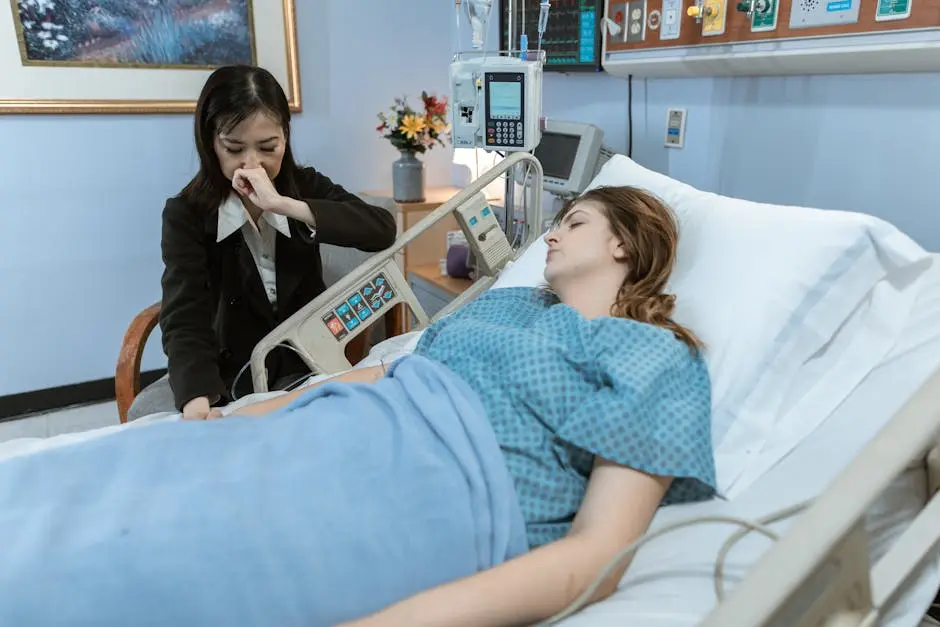Sleep apnea can greatly affect your quality of life, from relentless fatigue to serious health risks. While many people manage their symptoms with CPAP machines or lifestyle changes, surgery could be the right route for some. In this post, we’ll explore the signs that surgery might be the best choice for you, examining how it can offer a more permanent solution to your sleep struggles.
1. Persistent Daytime Fatigue
One of the most common signs that could indicate the need for sleep apnea surgery is persistent daytime fatigue. If you find yourself struggling to stay awake during meetings or frequently yawning throughout the day, this could be a strong signal. Fatigue isn’t just an annoyance; it profoundly impacts your productivity and overall quality of life.
Many individuals with untreated sleep apnea experience disrupted sleep cycles due to breathing interruptions, which can occur dozens or even hundreds of times a night. This constant cycle of waking up and returning to sleep prevents you from reaching the deeper stages of sleep that are critical for physical and mental recovery. Therefore, if daytime sleepiness and fatigue are demotivating you to engage in daily activities, it may be time to consider the surgical options available.
2. Chronic Snoring That Disturbs Sleep
Another indicator that sleep apnea surgery might be appropriate is chronic snoring that disturbs sleep. If you frequently wake yourself or your partner with loud snoring episodes, this could be a sign of the underlying sleep disorder. This often leads to additional problems in your relationships, as your partner may experience sleepless nights alongside you, contributing to stress and anxiety.
Snoring occurs when airflow is obstructed in some way, leading to the vibration of throat tissues. This obstruction, which can be exacerbated by excess weight or anatomical differences, is not merely an inconvenience; it is a clear warning of potential sleep apnea. Understanding the root cause of your snoring is essential, and if you find that lifestyle changes haven’t reduced this issue, discussing surgical options with a specialist could prove beneficial.
3. Difficulty Concentrating and Memory Issues
If you’ve noticed difficulty concentrating and memory issues, this could also indicate that sleep apnea is affecting your cognitive function. Many people find themselves in a fog, struggling to focus on simple tasks. This cognitive impairment stems from the poor quality of sleep that those with sleep apnea experience.
Research has shown that consistent sleep deprivation can affect the brain’s ability to process and recall information. The more frequently you are disrupted at night, the harder it is for your brain to function optimally during the day. If you’ve tried methods like sleep hygiene and still find it challenging to concentrate, it may be time to talk with a healthcare professional about exploring sleep apnea surgery.
Additionally, such cognitive symptoms can often lead to decreased performance at work or school. If this disruption to your daily life feels overwhelming, seeking surgical solutions may offer you the chance to regain mental clarity and focus.
4. Frequent Nighttime Awakenings
Are you waking up frequently throughout the night? If you are experiencing frequent nighttime awakenings, it’s another strong sign that surgery might be a consideration for your sleep apnea. The constant interruptions can leave you feeling anxious and frustrated, unable to achieve restful sleep.
Waking up multiple times due to breathing issues can result in a fragmented sleep pattern, which undercuts the overall restorative power of sleep. Each time you rouse, your body must go through the process of falling back asleep, which can exacerbate feelings of daytime fatigue and contribute to other health risks. For those who have tried various treatments with minimal success, it might be necessary to consult a sleep specialist about the potential benefits of surgical intervention.
5. High Blood Pressure or Heart Problems
Underlying health issues, such as high blood pressure or heart problems, can also serve as indicators that surgical options should be considered. Sleep apnea places added stress on your cardiovascular system, which can not only elevate blood pressure but also increase the risk of heart disease.
Consistent oxygen deprivation during sleep puts additional strain on your heart, making it essential to address the condition. If you’ve attempted to manage your blood pressure through diet and medication but still experience resistance, addressing sleep apnea might yield surprising health benefits. Considering surgery could be life-changing, potentially alleviating issues that correlate directly with sleep apnea.
6. Limited Success with Other Treatments
Have you found limited success with other treatments for sleep apnea? This can be incredibly disheartening, especially if you’ve tried lifestyle changes, CPAP therapy, or dental devices without experiencing much relief. Many individuals become discouraged if they can’t find a treatment that effectively addresses their symptoms.
If you reach a point where CPAP machines feel restrictive or uncomfortable and lifestyle changes haven’t produced the results you were hoping for, it might be time to evaluate your options with a medical professional. Exploring surgical options could provide a permanent solution, targeting the fundamental issues instead of simply managing symptoms.
7. Changes in Your Airway Structure
Finally, changes in your airway structure is a crucial sign that sleep apnea surgery might be right for you. Conditions like nasal obstruction, enlarged tonsils, or other anatomical variations can contribute significantly to sleep apnea. If you’ve had a history of these issues and they seem to correlate with your experience of sleep apnea, surgical intervention could resolve the fundamental cause for good.
Recognizing that the structure of your airway might require surgical correction can be a pivotal moment in your journey towards better sleep health. A thorough examination by a qualified specialist can reveal whether surgical options would alleviate your symptoms effectively, leading to a more restful night’s sleep.





